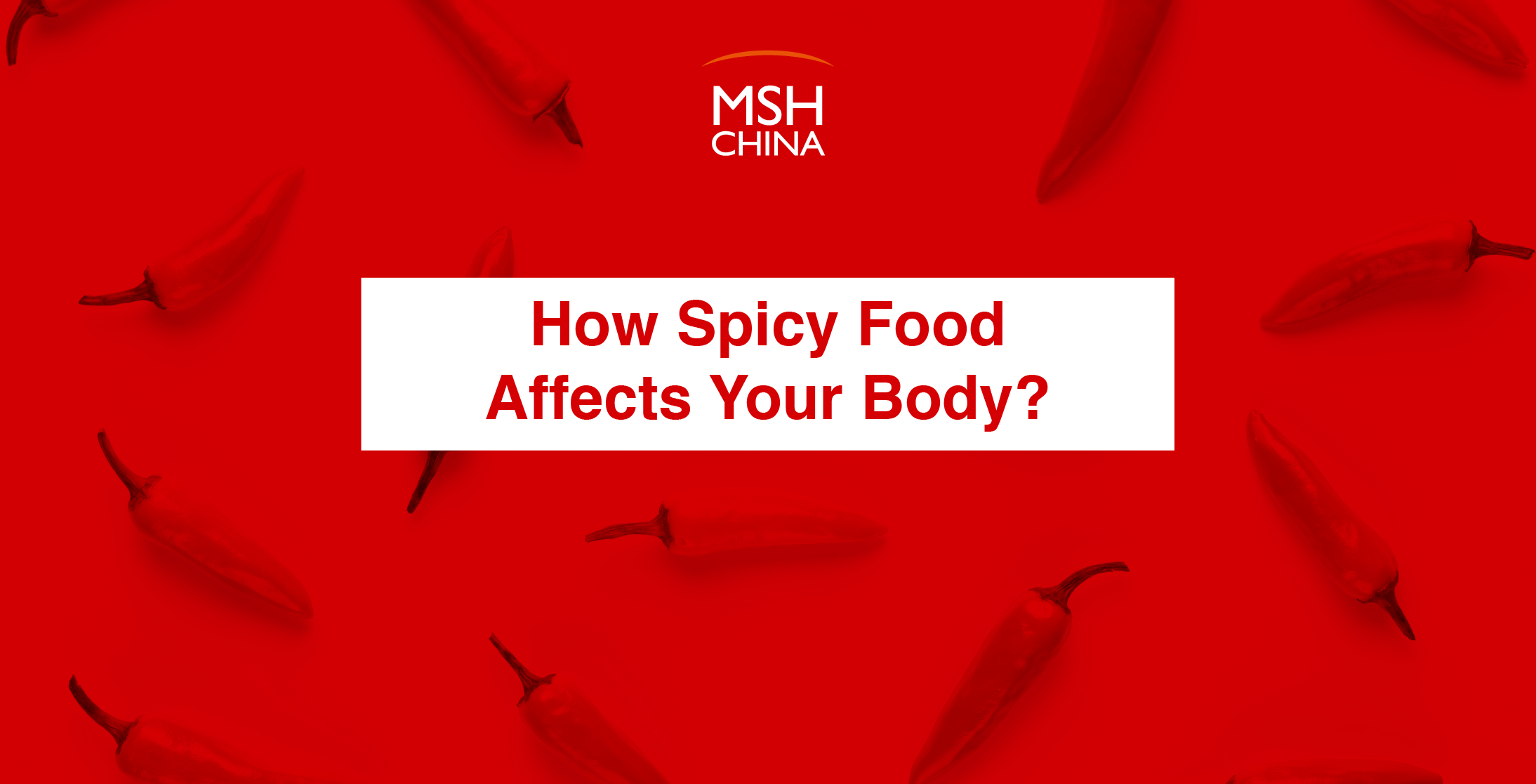Back to list
2020-09-17 15:25:24

Ever wonder what
happens inside your body when you’re eating spicy food?
When it comes to
healthy eating, spicy food gets some pretty mixed reviews. Besides being
delicious for some, and awfully hot for others, what exactly are the effects on
your body and potential health benefits?
To answer these
questions, MSH China asked clinical dietitians experts Katrin Lee and Melody
from Jiahui Health Centre. Katrin has been in clinical nutrition field for more
than 9 years with rich experience in medical nutrition therapy with a
particular focus on cardiovascular disease, diabetes, gastrointestinal disease,
weight management, eating disorders and more.
 What happens when we eat spicy foods?
What happens when we eat spicy foods?
Spices contain capsaicin, a bioactive substance
existing in chili and spices. Capsaicin
binds to pain receptors on the tongue and oesophagus to create pain/burning
sensation in the mouth and chest.
When the spicy food
goes into stomach, it will be digested as usual. People with sensitive bowel may have symptoms such as stomach
cramp, pain and diarrhoea. When the capsaicin hit the pain receptors producing
the burning sensation, it actually
makes the brain think the body temperature raises. This explain why people
usually sweat and have red face when having spicy foods, as our body is trying
to cool down. Capsaicin also stimulates mucus membranes and produce mucus, which explains why people usually have running nose as well when having spicy foods.

 Will I live longer if I eat spicy foods?
Will I live longer if I eat spicy foods?
Spices such as
chilli, turmeric, cumin, garlic and cinnamon are healthy. Capsaicinoids are the
natural chemicals in spicy foods and are antioxidants with many health
benefits.
Having spices on regular basis
increase longevity and reduce in total mortality. Capsaicinoids are phytochemicals
which has anti-cancer, anti-oxidation and anti-inflammation effects in our body
to improve our overall health. Having spices may also help boost up metabolism.
 But are there any risks?
But are there any risks?
As having spicy
foods creates a burning/pain sensation, it
may irritate digestive tract from pain, cramping and indigestion. However,
it won’t cause any actual damage on a healthy digestive system.
Having spicy foods may trigger diarrhoea,
acid reflux and other clinical symptoms on people who have sensitive bowel
such as GERD, irritable bowel syndrome and inflammatory bowel disease. However,
when some people eat very spicy foods, they may vomit. During vomiting, your
digestive system especially oesophagus is at risk of being damaged.

 Spicy Food Kills Bacteria: True or False?
Spicy Food Kills Bacteria: True or False?
Spicy food
doesn’t directly kill bacteria. However, some spices such as turmeric, cumin,
garlic and onions, contain various
antioxidants and have antibacterial effects, which may help fight bacteria
in our body and enhance our immune system.
 Why Do We Like Spicy Food So Much?
Why Do We Like Spicy Food So Much?
The feeling
when having spicy foods is a pain sensation, not a taste. The brain has been tricked when we are having spicy foods. The
brain responds as the same way as responding to pain, which trigger the brain
to release endorphins and dopamine (“happy” hormones), and may make you feel happy.
In China,
almost all spicy foods are made along with a lot of other seasonings like sugar,
salt and oil in spicy hotpots, barbecue, etc. People like spicy foods might be
because of the combination of those flavours, not just the spices itself. You
can have spicy foods but cutting down sugar, salt and oil.
Thank you Katrin & Melody!